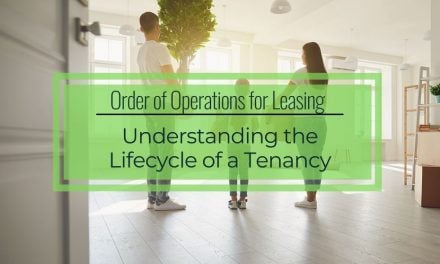
As you expand your real estate portfolio, it does get a bit more complicated to manage finances for multiple rental properties simultaneously.
You probably want to focus most of your energy on day-to-day operations, as well as maintenance of your properties, but taking the time to invest in the right banking decisions now will save you plenty of accounting headaches in the future. Not to mention keep you legally compliant in some scenarios.
One of the bigger decisions you need to make is how many business bank accounts to open and maintain — through which you will funnel rental income and expenses.
The short answer is: you should have at least one business bank account, possibly more, per real estate property you own or manage. Now let’s tackle the longer answer, explaining why having separate business accounts is so important.
4 Key Advantages of Having Separate Business Bank Accounts
1) Meet Legal Requirements for Owning or Managing Multiple Properties
Did you know that once you have multiple business entities in your real estate portfolio, you may be legally required to keep at least some of the funds related to each entity separate?
Simply put, let’s assume:
- You own or manage more than one property
- Each property is its own business entity
Some state laws demand that you house money earned or held from each individual property separate from each other — and definitely away from all personal accounts.
Check with an accountant to verify local regulations for your properties; it’s possible you are required to keep funds like deposits and rent payments for each entity, apart.
Learn more: Rental Property Management Trust Accounting Primer
2) Simplify Bookkeeping and Enable Better Cash-flow Management
It’s far easier to keep your books balanced if you’re not commingling rent checks from different buildings or paying your electrical contractor for work on one property, with funds earned from another.
Whoever does your bookkeeping will be better set up for success if banking information for each property is segregated.
And these back-office tasks will be even simpler to manage if you choose a business bank with a dashboard that provides an at-a-glance overview of not just all your different accounts but a breakdown of deposits, expenses, and payments for each account as well.
This bird’s-eye view of the income and expenses for each property allows you to easily:
- Estimate future cash flow based on your past financial activity and trends
- Earmark funds for future expenditures
- Identify opportunities for tax deductions or savings
3) Protect the Business from Tax Losses and Individuals from Audit Risk
No one is excited when tax time rolls around. But you will be much better prepared for tax filing — or an IRS audit — if your financial records for each property are sorted separately:
- Not only is the year-end reconciliation of income and expenses for taxes easier to compile if funds for each property have been kept apart, but you can also potentially reduce the amount of tax owing when referencing a clear-cut list of all deductible expenses for the specific building in question.
- If you own or run more than one type of property, your tax requirements may be different for each entity. Again, it’s easier to accurately meet different tax obligations when financial records are organized separately.
- If you face an audit, it is definitely better if only the funds from the entity (or entities) being audited are reviewed. It’s particularly important in this scenario that all personal income and expenditures have been funneled through bank accounts not associated with the entity so that no individual is held personally liable for any business-related penalties.
4) Set Yourself Up for Your Next Mortgage (and Expansion Success)
When you’re ready to expand your real estate holdings and acquire a new property, accessing loans and/or mortgages will require a thorough review of your financial performance. Your current portfolio is your resume for the bank or lending institution, telling them how safe a bet you are.
According to Forbes, a lender will ask a commercial borrower to provide “financial statements for the past three years, financial projections for the next 12 months, tax returns for the past three years (typically two years for residential mortgages), current personal financial statements and tax returns of any principal owners and copies of current and projected rent rolls for loans that involve the finance of rental properties.” Remember, your application will be far more professional if financial records for each of your current properties are clearly differentiated.
Choose a Banking Platform Designed to Support Multiple Business Accounts
Now that you’re equipped with more insight into how separate accounts for each property can help protect your business from risk, it’s time to choose the right business bank for you.
While everyone has unique needs, turning to a neobank (an online bank) that specializes in business accounts alone — and makes it easy to open and access as many accounts as you require — is often a good fit for property managers and owners.
Look for a bank that supports real estate businesses by offering:
- No fees to open an account
- No monthly fees to maintain each of your multiple accounts
- No minimum balance requirements
- No fees for sending and receiving ACH transfers or checks, as well as the ability to make mobile check deposits
- Multiple no-fee checking accounts per business entity, helping you to compartmentalize types of expense
- A single login to manage multiple accounts for multiple entities
- Enriched transaction data and automated accounts payable integrations, driving more efficient bookkeeping
With services like these, you can rest easy knowing that your banking needs for each property are being met…and get back to running and growing your property business.






